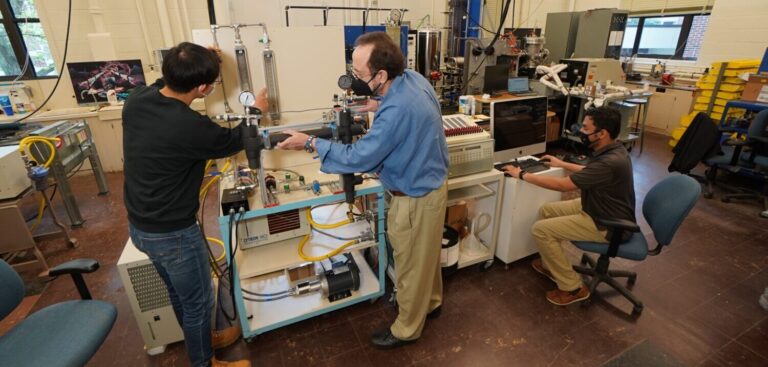Researchers from Ford and Purdue University are working to develop a new charging station cable that could combine with in-development vehicle charging technology, making it easier for people to transition to EVs.
“Today, chargers are limited in how quickly they can charge an EV’s battery due to the danger of overheating. Charging faster requires more current to travel through the charging cable,” said Michael Degner, senior technical leader, Ford Research and Advanced Engineering. “The higher the current, the greater the amount of heat that has to be removed to keep the cable operational.”
Purdue researchers are focusing on an alternative cooling method that will allow a charging cable to deliver an increased current. The cable uses liquid as an active cooling agent, which can help extract more heat by changing phase from liquid to vapor. Current technology relies on liquid cooling.
Ford and Purdue believe that this innovation could allow delivery of significantly more power than today’s leading systems to re-charge electric vehicles, therefore potentially enabling faster re-charge times.
“Electric vehicle charging time can vary widely, from 20 minutes at a station to hours on an at-home charging station, and that can be a source of anxiety for people who are considering buying an electric vehicle,” said Issam Mudawar, professor of mechanical engineering, Purdue University.
Mudawar added that his lab intends to begin testing a prototype charging cable in the next two years to determine more specific charge speeds for certain models of electric vehicles.


